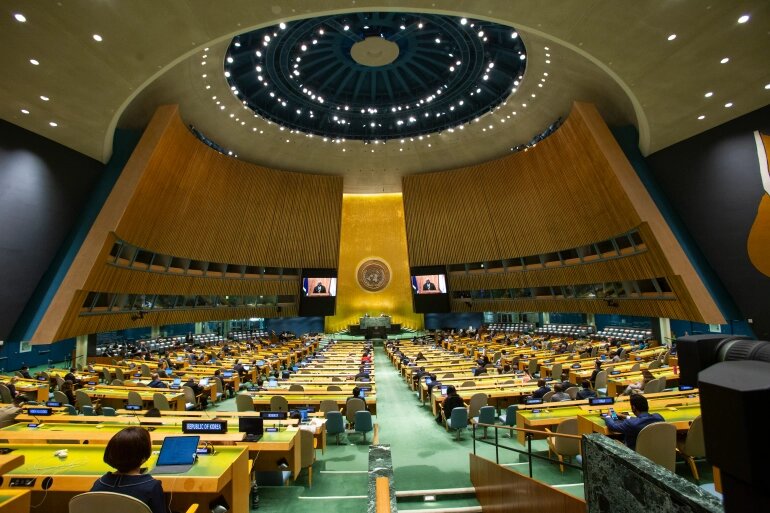Bulgaria and Albania Secure Seats on the UN Human Rights Council
In a decisive vote at the United Nations General Assembly, Russia’s attempt to regain its position on the UN Human Rights Council was thwarted, while Bulgaria and Albania clinched the coveted seats. This development comes 18 months after Russia’s suspension from the council due to its full-scale invasion of Ukraine, marking a pivotal moment in the global arena.
In a closely watched secret ballot involving all 193 UN member states, Bulgaria emerged victorious with a resounding 160 votes, followed by Albania with 123 votes. These votes have secured each country a three-year term on the Human Rights Council, commencing on January 1, further reshaping the dynamics of the council.
A Strong Message to Russia’s Leadership
The outcome of the vote serves as a powerful message to Russia’s leadership and the international community. Louis Charbonneau, UN Director at Human Rights Watch, emphasized, “UN member states sent a strong signal to Russia’s leadership that a government responsible for countless war crimes and crimes against humanity doesn’t belong there.” The suspension in April 2022 had been orchestrated in a diplomatic effort led by the United States, with the election for the new term viewed as a litmus test of Moscow’s diplomatic backing amid relentless Western criticism following its brutal assault on Ukraine.
The voting process took place just days after a Russian missile strike on the Ukrainian village of Hroza, which resulted in the tragic loss of over 50 lives. Although Russia garnered 83 votes, demonstrating some international support, Richard Gowan of the Crisis Group emphasized that “Ukraine’s friends remain the most influential force in the General Assembly.”
China’s Controversial Re-election Amid Human Rights Concerns
China, another notable contender in the election, secured a seat on the Human Rights Council despite over 80 non-profit groups urging member states to oppose its re-election due to concerns over its human rights record. This re-election stirred controversy given the allegations of potential crimes against humanity in the Xinjiang region, where mostly Muslim Uighur people are reportedly held in secret camps. Michelle Bachelet, the UN’s former human rights chief, had been advocating for access to the region and finally gained entry in a tightly choreographed visit in May 2022.
The Uyghur Human Rights Project expressed dismay, stating that “Crimes against humanity and genocide apparently [are] not disqualifying actions for UN’s top human rights body.” Savita Pawnday, the Executive Director of the Global Centre for the Responsibility to Protect, also highlighted concerns about the human rights records of some countries elected to the Human Rights Council, including China.
The Human Rights Council’s 47 members are allocated by region, and China was one of four countries vying for the four open seats in the Asian group. Indonesia led the Asian group with 186 votes, while China secured fourth place with 154 votes. Meanwhile, Cuba retained its seat in the Latin America and Caribbean region, despite facing criticism over its human rights record.
The outcome of this election reflects the global community’s commitment to addressing and upholding human rights standards, while sending a stern message about accountability for actions deemed contrary to the principles of the United Nations. As the new members prepare to take their seats on the Human Rights Council, the international community remains watchful of their actions and decisions on critical human rights issues.
















